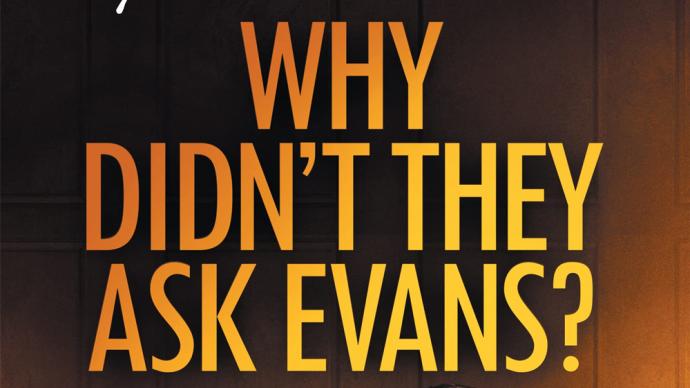
Note: This article contains spoilers, it is recommended to read it after watching the show
If you have read Agatha Christie's original book, or the "Miss Marple Detective" series S04E04, you will find a new version of "Murder on the Cliff" (Why Didn't They Ask Evans) written, directed and starred by Hugh Laurie. ) did a drastic adaptation.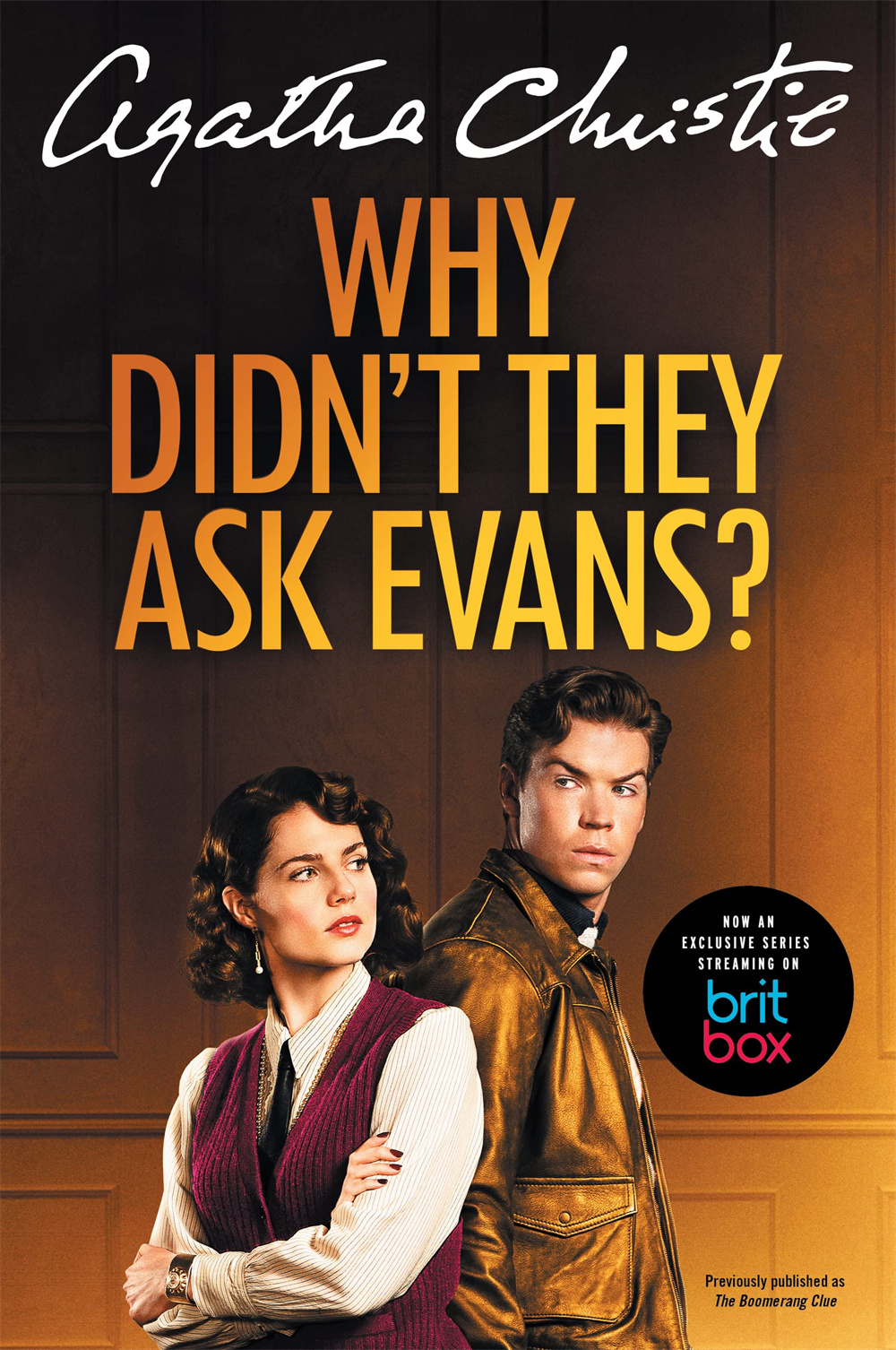
The second thing he did was a bit more clumsy: bring in a role of a hired killer. Reasoning fans are most disgusted by this: if the murderer is unwilling to do it himself, and adopts the indiscriminate means of hiring murder, then the tricks in classical reasoning will lead to the passion for murder will no longer exist.
Classical reasoning works well because it magnifies passion and lets it dominate human behavior. The implementation of trickery requires intelligence, willpower and luck, all three are indispensable. What is finally presented to the reader/viewer is the interlocking scroll, and noticing the key parts is the first step in solving the case. The Hire Killer was left out of the long volume, because his violent debut would destroy the delicate whole, invalidate reasoning, and erode the best part of the ruse.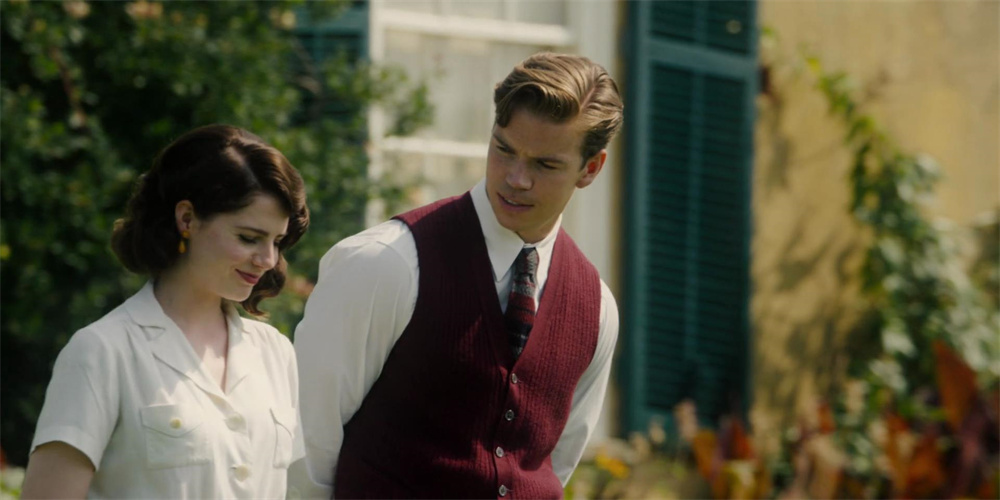
Bobby Jones finds a man falling off a cliff on a golf course by the sea. He climbed down to save the man, and the man grabbed him by the wrist and said something out of nowhere: "Why didn't they ask Evans?" Another man arrived just in time, his name was Roger Bassington— Frankie (Daniel Ingels), the unlucky second son who failed to inherit the family's fortune, played a game of life, and somehow came to this gloomy beach.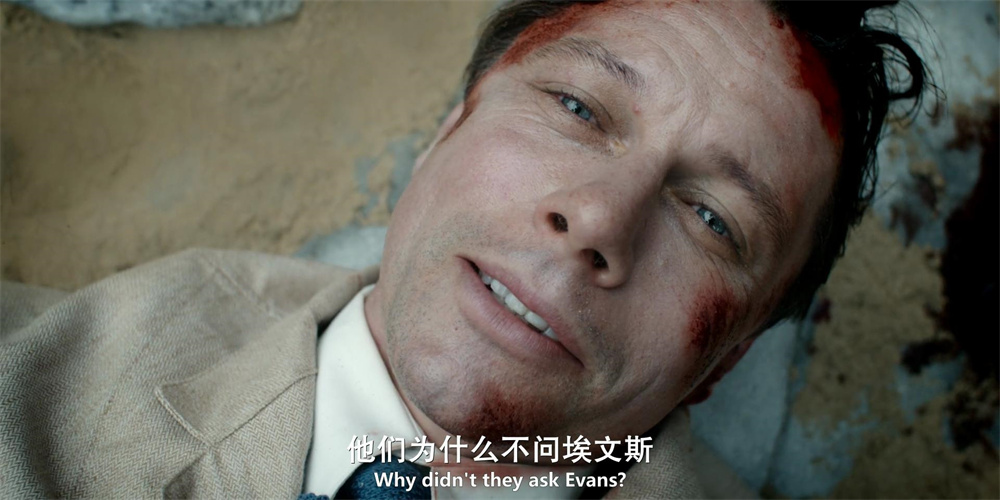
Hugh Laurie's rewriting of the motive for murder is more in line with the modern audience's preference for insanity, pure evil, and murder for no reason. In the original work, the motive is the double hatred of the child being abandoned by the mother and the murder of the father, and the criminal process is carefully planned. In this version, the murderer's motive was first for money and later described as "improvisation". Improvisation is a combination of chaos and impulsiveness. Well written can increase the charm of the character, bad writing can only be used to cover up the omissions of the reasoning chain.
In this play, the role of "improvisation" is the latter. To add to the excitement, the three-episode miniseries throws out a murder in one episode and looks hilarious, but some of the deaths and attempted murders are pure improvisation that is neither necessary nor related to reasoning. The death of the wooden-legged Doctor Thomas was such a pustule. The screenwriter was too lazy to explain the reason why the murderer attacked him, and just said "he talks too much" and dismissed it.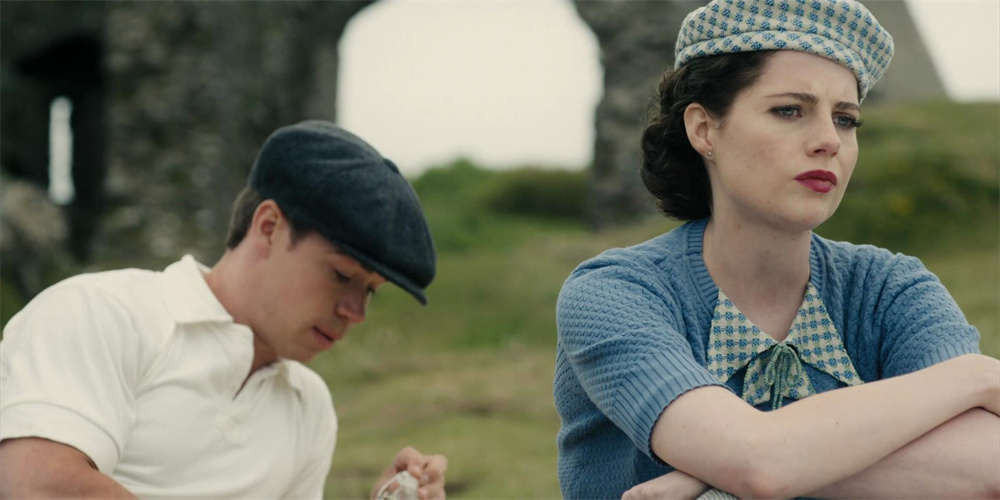
The mentally retarded approach of the murderer is also hard to ignore. After learning the last words of "why didn't they find Evans" from Bobby's mouth, normal people would make the first move, get rid of Evans to avoid future troubles, and eliminate the only witness in the rich man's will case that triggered a series of events. In this way, even if the amateur detective team is powerful and has no witnesses, the cliff murder case will be a headless case due to lack of motivation.
The Kleimans, who pretended to be the family of the cliff deceased, were also redundant. Roger could have taken both the photo of the deceased and the hotel key, instead of leaving the key, which would later serve as a clue, and replacing the photo of Moira (Maeve Dermody) with a fake sister. He walked the eighteen bends of the mountain road, and he had to pay to hire someone to act, I don't know why.
There is only one possibility that Roger and Moira were really just ordinary neighbors at the time of the cliff murder. But a few days later, they rented the mansion together, trapped Bobby and Francis, and showed a tacit accomplice state. When did the change happen?
The relationship between Roger and Moira is the core of the serial case, but it has not been clearly explained. The screenwriter either wants to give the time to the bright couple, or is afraid that the explanation will be too clear, but it will create more loopholes, and they will hide it anyway.
In the first two episodes, the fast-paced chasing and falling in love, and the wonderful supporting competitions starred by old actors appeared one by one, which still attracted attention and made the audience too late to pay attention to various loopholes. Foreshadowing to the third episode, without waiting for the moment of truth, there is only another unnecessary murder case and a vulgar trick, and the audience will be disappointed.
Of course, the writers could argue for the killer that this unnecessary, loose death was the product of "improvisation." But audiences who choose to watch an Agatha novel adapted into a film and television drama are not looking forward to a traceless, carnival-type crime story. Because classical reasoning is always consciously creating an intellectual game and will not let impromptu crimes run, readers/viewers are willing to devote 100% of their energy to solving the case with the detective. They believe that the author will not let himself down and that all threads will be found and connected.
In this version, even the truth is stingy. The remaining mysteries include, but are not limited to: Was the rich man killed? Who is the murderer of the cliff dead, is it a hired killer, or is it Roger?
However, even if the 2022 version of "Murder on the Cliff" has a lot of loopholes, it is very imprecise, the clear places are blurred, and the simple places are bloated, and its viewing experience is surprisingly good. Although the screenwriter is not good at reasoning, the dialogue is well written and the actors are well chosen. Almost all of the supporting roles are not related to the case, and the audience can already guess this by watching half of it. Think of it as a light-hearted period drama, and enjoy the British pastoral scenery. The setting is so detailed that the planting style outside each house is adapted to local conditions. It is good to pass three hours like this.
If you have read Agatha Christie's original book, or the "Miss Marple Detective" series S04E04, you will find a new version of "Murder on the Cliff" (Why Didn't They Ask Evans) written, directed and starred by Hugh Laurie. ) did a drastic adaptation.

Murder on the Cliff poster
Modifying Agatha's novel is like editing an article that is so tightly structured that it is difficult to move a single word. Hugh Laurie's first thought was to break the closed-environment murder case that Agatha was best at, and expand the scene from a house or two to a road trip. Add characters, break up character functions, and reduce the difficulty of adaptation. The pure intellectual game that originally took place in the manor and required everyone to gather together has become an adventure trip where luck and force are more important than reasoning.The second thing he did was a bit more clumsy: bring in a role of a hired killer. Reasoning fans are most disgusted by this: if the murderer is unwilling to do it himself, and adopts the indiscriminate means of hiring murder, then the tricks in classical reasoning will lead to the passion for murder will no longer exist.
Classical reasoning works well because it magnifies passion and lets it dominate human behavior. The implementation of trickery requires intelligence, willpower and luck, all three are indispensable. What is finally presented to the reader/viewer is the interlocking scroll, and noticing the key parts is the first step in solving the case. The Hire Killer was left out of the long volume, because his violent debut would destroy the delicate whole, invalidate reasoning, and erode the best part of the ruse.

Screenshot of "Murder on the Cliff"
The third thing is to get Marple or Poirot off the scene and give the protagonist to a pair of amateur detectives who are in love with each other. Countess Francis Derwent (Lucy Boynton) and the chaplain's son, former naval officer Bobby Jones (Will Poulter), separated as childhood sweethearts and reunited in their twenties. Reunited at home. They fall in love and solve crimes. The sugar is sweet, the reasoning is poor (but fortunately they know how to laugh at themselves), and they win by good luck in the end.Bobby Jones finds a man falling off a cliff on a golf course by the sea. He climbed down to save the man, and the man grabbed him by the wrist and said something out of nowhere: "Why didn't they ask Evans?" Another man arrived just in time, his name was Roger Bassington— Frankie (Daniel Ingels), the unlucky second son who failed to inherit the family's fortune, played a game of life, and somehow came to this gloomy beach.

Screenshot of "Murder on the Cliff"
For the rants to be written below, I assume you have seen the ending.Hugh Laurie's rewriting of the motive for murder is more in line with the modern audience's preference for insanity, pure evil, and murder for no reason. In the original work, the motive is the double hatred of the child being abandoned by the mother and the murder of the father, and the criminal process is carefully planned. In this version, the murderer's motive was first for money and later described as "improvisation". Improvisation is a combination of chaos and impulsiveness. Well written can increase the charm of the character, bad writing can only be used to cover up the omissions of the reasoning chain.
In this play, the role of "improvisation" is the latter. To add to the excitement, the three-episode miniseries throws out a murder in one episode and looks hilarious, but some of the deaths and attempted murders are pure improvisation that is neither necessary nor related to reasoning. The death of the wooden-legged Doctor Thomas was such a pustule. The screenwriter was too lazy to explain the reason why the murderer attacked him, and just said "he talks too much" and dismissed it.

Screenshot of "Murder on the Cliff"
In addition to creating unnecessary murders, the murderer also did a lot of superfluous actions. In the third episode, the murderer tried his best to kidnap Francis and Bobby, and he was tied up without stopping. This bloated and boring drama is only for love. Hugh Laurie sets a big stage just for a couple of lovers to laugh at themselves about what a bad detective they are, adding a little cheer to the plot.The mentally retarded approach of the murderer is also hard to ignore. After learning the last words of "why didn't they find Evans" from Bobby's mouth, normal people would make the first move, get rid of Evans to avoid future troubles, and eliminate the only witness in the rich man's will case that triggered a series of events. In this way, even if the amateur detective team is powerful and has no witnesses, the cliff murder case will be a headless case due to lack of motivation.
The Kleimans, who pretended to be the family of the cliff deceased, were also redundant. Roger could have taken both the photo of the deceased and the hotel key, instead of leaving the key, which would later serve as a clue, and replacing the photo of Moira (Maeve Dermody) with a fake sister. He walked the eighteen bends of the mountain road, and he had to pay to hire someone to act, I don't know why.
There is only one possibility that Roger and Moira were really just ordinary neighbors at the time of the cliff murder. But a few days later, they rented the mansion together, trapped Bobby and Francis, and showed a tacit accomplice state. When did the change happen?
The relationship between Roger and Moira is the core of the serial case, but it has not been clearly explained. The screenwriter either wants to give the time to the bright couple, or is afraid that the explanation will be too clear, but it will create more loopholes, and they will hide it anyway.
In the first two episodes, the fast-paced chasing and falling in love, and the wonderful supporting competitions starred by old actors appeared one by one, which still attracted attention and made the audience too late to pay attention to various loopholes. Foreshadowing to the third episode, without waiting for the moment of truth, there is only another unnecessary murder case and a vulgar trick, and the audience will be disappointed.
Of course, the writers could argue for the killer that this unnecessary, loose death was the product of "improvisation." But audiences who choose to watch an Agatha novel adapted into a film and television drama are not looking forward to a traceless, carnival-type crime story. Because classical reasoning is always consciously creating an intellectual game and will not let impromptu crimes run, readers/viewers are willing to devote 100% of their energy to solving the case with the detective. They believe that the author will not let himself down and that all threads will be found and connected.
In this version, even the truth is stingy. The remaining mysteries include, but are not limited to: Was the rich man killed? Who is the murderer of the cliff dead, is it a hired killer, or is it Roger?
However, even if the 2022 version of "Murder on the Cliff" has a lot of loopholes, it is very imprecise, the clear places are blurred, and the simple places are bloated, and its viewing experience is surprisingly good. Although the screenwriter is not good at reasoning, the dialogue is well written and the actors are well chosen. Almost all of the supporting roles are not related to the case, and the audience can already guess this by watching half of it. Think of it as a light-hearted period drama, and enjoy the British pastoral scenery. The setting is so detailed that the planting style outside each house is adapted to local conditions. It is good to pass three hours like this.
Related Posts